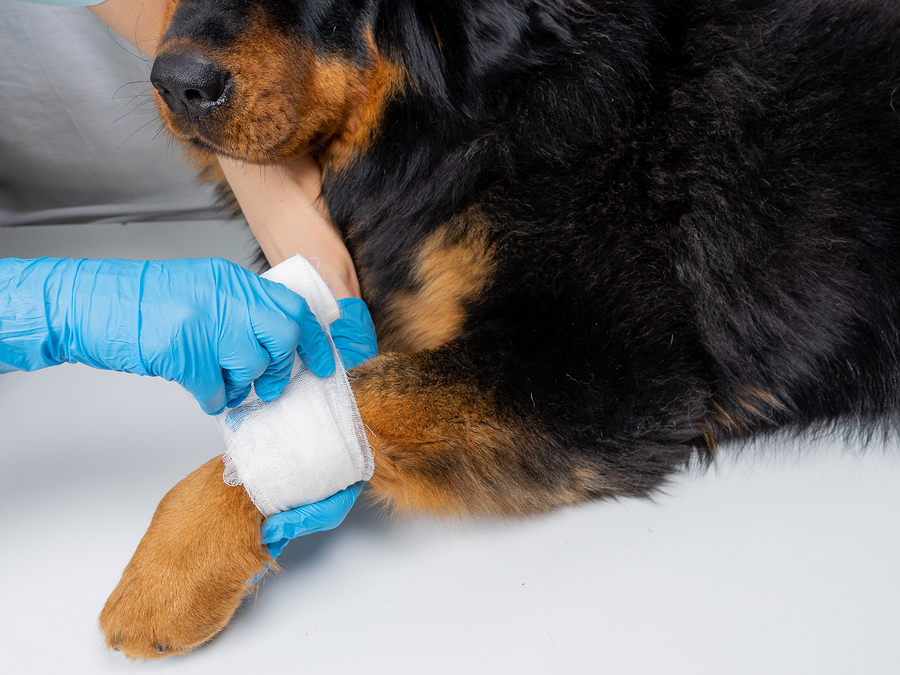Rabies is a very dangerous, and most often lethal, to mammals who contract the virus. The animals that are common carriers of the disease are raccoons, bats, foxes, and skunks. When it comes to domesticated dogs, the most vulnerable to contracting the virus are the ones that have not been properly vaccinated for it. Rabies vaccines are vital and mandatory by law. All dogs should be vaccinated for the virus after three months of age. Non-vaccinated pets, especially those that are permitted to roam free through the yard, are the most at-risk for contracting the virus.
Continue reading to learn some information about what to do if your dog is bitten by a rabid animal, and how likely they are to survive the attack.

Vaccinated Dogs
If a dog has been properly vaccinated, meaning on a routine basis recommended by a licensed veterinarian, there is a better chance of survival if they are bit by a rabid raccoon. As soon as a pet owner is aware that their dog has been scratched or bitten by a rabid animal, they must immediately take it into an emergency pet hospital so that it can be administered a Rabies booster shot. From there, they must be isolated and kept under observation for any signs of the virus for 45 days.
Unfortunately, a Rabies vaccine is not a 100% full-proof against the virus. It is still possible for the dog to contract Rabies and show signs and symptoms 2 to 8 weeks after the attack, even if they are up-to-date with all their shots; but keep in mind this is very unlikely. The chances of a properly-vaccinated dog contracting Rabies is much less than for a pet without any previous vaccinations. For dogs with expired vaccinations, procedures are determined on a case-by-case basis.
Non-Vaccinated Dogs
It is a much sadder story for dogs that have not received routine Rabies vaccinations. If bitten or scratched by a rabid animal, an non-vaccinated dog must be euthanized. If the owner of the dog refuses to have their pet euthanized, the state law requires the dog to be quarantined and observed for 6 months, receiving a vaccination one month prior to being released.
However, if symptoms develop, there is no chance for survival and the pet must be put down. It general takes anywhere from one to eight weeks for symptoms to show. If the animal that bit the dog can be caught, and it ends up testing negative for Rabies, the bitten dog can be put in observation and then given a vaccine.
Who to Call for Louisville Raccoon Control
Call our expert wildlife rescue operators today at 502-553-7622 for professional Louisville raccoon control services today. We offer a wide range of services for residential and commercial properties, including raccoon removal, control, prevention, proofing, cleanup, attic restorations, and more. Call 502-553-7622 to request a free estimate or information about Louisville raccoon control, today.

